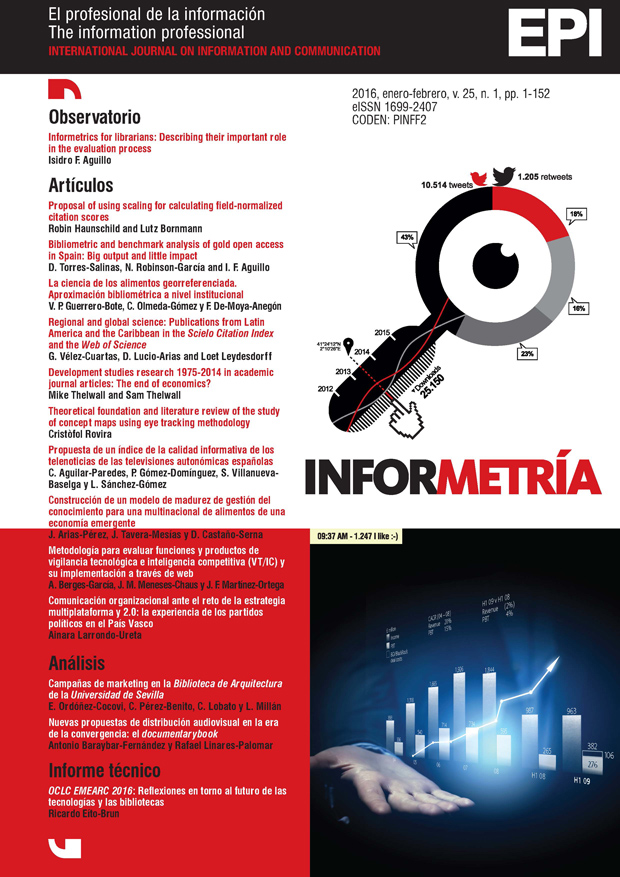Organisational communication facing the challenge of multiplatform and Web 2.0 strategy: The experience of the political parties in the Basque Country
DOI:
https://doi.org/10.3145/epi.2016.ene.11Keywords:
External communication, Organizations, Political parties, Websites, Web 2.0, Basque Country, Spain.Abstract
Aware of the fact that nowadays transmitting information is insufficient for successfully communicating, organizations are increasingly multi-channeled communicators, in addition to receiving what their public communicates, because they are aware that simply transmitting information is no longer sufficient for successful communication. In particular, political organizations and their leaders have shown a strong interest in recent years for exploring technologically advanced communication avenues, in accordance with the "˜permanent campaign´ idea (Blumenthal, 1980; Ornstein; Mann, 2000). This article examines current tendencies that determine the management of political communication, outside of specific voting contexts, through a case study of five parties with parliamentary representation in the Autonomous Community of the Basque Country, Spain. Using qualitative methodology, based on website analysis and in-depth interviews with press departments, this study explains why these organizations situate themselves in a 1.5 evolutionary phase (Kalnes, 2009).
Downloads
Downloads
Published
How to Cite
Issue
Section
License
Dissemination conditions of the articles once they are published
Authors can freely disseminate their articles on websites, social networks and repositories
However, the following conditions must be respected:
- Only the editorial version should be made public. Please do not publish preprints, postprints or proofs.
- Along with this copy, a specific mention of the publication in which the text has appeared must be included, also adding a clickable link to the URL: http://www.profesionaldelainformacion.com
- Only the final editorial version should be made public. Please do not publish preprints, postprints or proofs.
- Along with that copy, a specific mention of the publication in which the text has appeared must be included, also adding a clickable link to the URL: http://revista.profesionaldelainformacion.com
Profesional de la información journal offers the articles in open access with a Creative Commons BY license.




